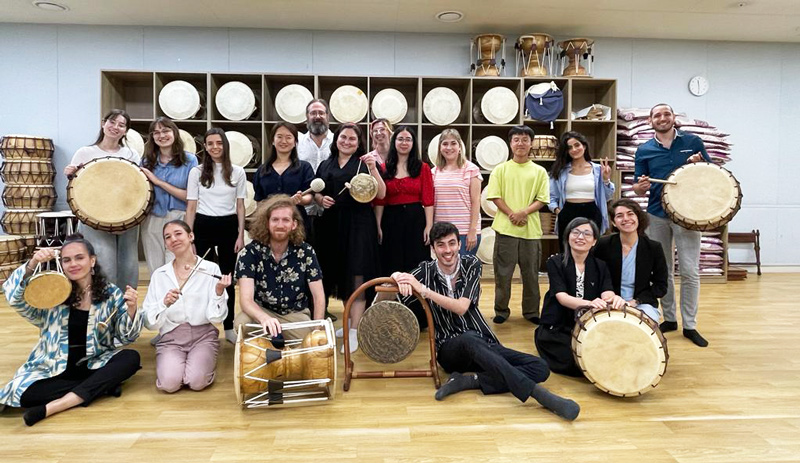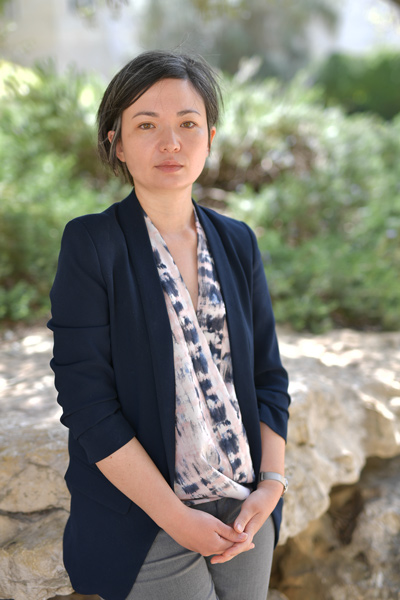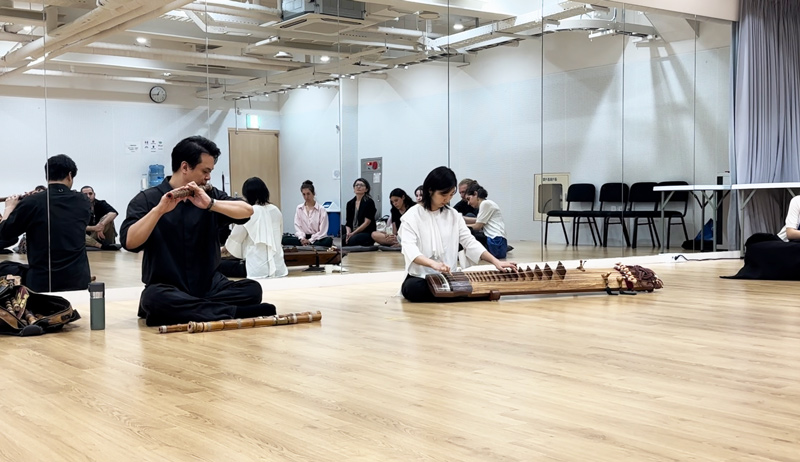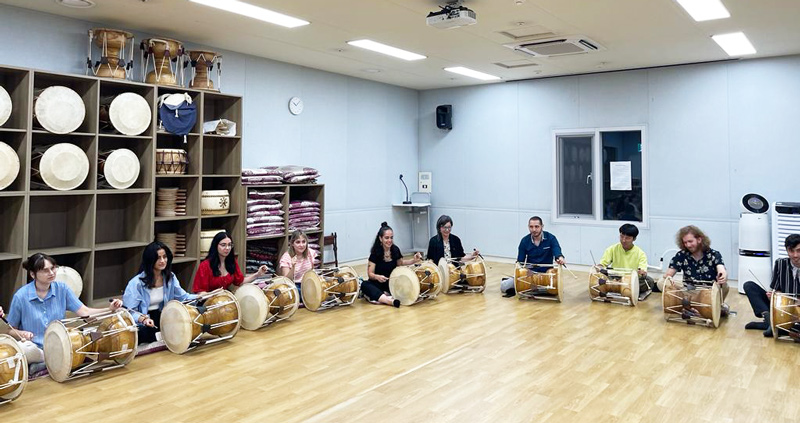

Sixteen students from Hebrew University’s Korean studies program embarked on a journey in late August to build a cultural bridge between the two countries while experiencing the sounds of Korea ― from the pulsating beats of K-pop to the unique sounds of the country’s traditional music ― emboldened by a passion for cultural understanding and innovation.

Guiding the students was Irina Lyan, the head of the Korean studies program at Hebrew University. Also known as Ira, she brings a rich and diverse background to her role, identifying herself as Jewish, Korean, Russian and Israeli.
Born and raised in Khabarovsk, a city in far-eastern Russia, Lyan grew up in a family with a Korean father and a Jewish mother. Despite the existence of both Jewish and Korean communities in her hometown, she often felt out of place, but later discovered a sense of belonging in the cosmopolitan atmosphere of Jerusalem.
“I feel like being in this niche of connecting Israel and Korea together is my place,” Lyan said during an interview with The Korea Times on Aug. 25.
Lyan has been in charge of the Hebrew University’s Korean Studies program for three years. A sociologist by training, she took interest in Korea’s post-war development and explored ways for Koreans and Israelis to collaborate more efficiently, overcoming cultural gaps and stereotypes.
She is particularly keen in the role of innovation and technology in shaping the modern identities of Korea and Israel as both are known for their technological advancements, despite lacking natural resources like oil.
“The Israeli government today promote the image of innovation: A startup nation with innovative technologies,” she said.
Her focus shifted to the cultural side with the rise of “hallyu,” or the Korean wave, particularly after Korean TV dramas started airing in Israel around 2006. She is also passionate about deepening the understanding of Korea other than what is commonly portrayed in TV dramas and books.
“I do try to bring my personal story to class. I see what students are really interested in is not just that learned from books, but learned from people,” she said, highlighting the importance of moving beyond stereotypes to foster genuine understanding and coexistence.

Future bridges between Korea, Israel
This trip, which marked a third traveling seminar of the Hebrew University Korean studies program, focused on exploring the “Koreanness” in Korean culture, especially music.
“One of the reasons I came here with students is just to learn by myself. Most people around the world have experience Korea by TV drama, and it’s nice, but I want more like I want them to understand really, what does it mean to be Korean?” the professor said.
“Under the endless exams and assignments pressure during the academic year, students can easily lose motivation and forget that they choose Korean studies out of their passion for Korea. It was amazing to see this passion in action and the ability to connect what they learn about Korean culture, history and language to the seminar’s material.”
Lyan is particularly sensitive to the diverse religious backgrounds of her students, which include Christians, Jews and Muslims and tried to provide a comprehensive understanding of Korean culture that goes beyond a religious lens during their seminar trip to Korea.
The seminar offered a comprehensive glimpse into Korean culture through a variety of experiences, ranging from lectures on ethnography and Christianity in Korea to hands-on lessons in traditional Korean instruments and explorations of K-pop landmarks.
Israeli students said the seminar offered a more layered and nuanced insight into Korean culture via its musical traditions.
Limor Choukron, a junior in Korean studies and international relations, said “there is no better place than Korea to study about Korea, its language, people and culture.”
Choukron, who took part in an exchange program at Seoul National University and internship at the Israeli Embassy in Seoul last year, had an opportunity to work on a music video celebrating the 60th anniversary of Israel-Korea relations, which was a joint project of traditional Korean and Israeli musicians.
“This experience made me understand that I would like to learn more about Korean music and the local music industry,” she said. “During our music seminar, I felt that we zoomed out from the successful K-pop image and tried to understand different genres that are usually left aside from the spotlight. We met a trot singer, an independent hip-hop artist, a jazz producer, traditional Korean music artists and more.”
Israeli students expressed that the seminar offered a more layered and nuanced insight into Korean culture via its musical traditions.
Rachel Feldman, another junior studying Korean studies and literature, said the seminar and her four-month exchange program at Hankuk University of Foreign Studies helped her regain confidence in her major and motivation to keep on studying about Korea and its language.
“I think that music is a key ingredient in most cultures and especially in Korean culture. Because of that I wanted to go and expose myself to the diverse Korean music scene. I believe that this way I was able to get just a little bit closer to understanding this country and its people,” Feldman said.
